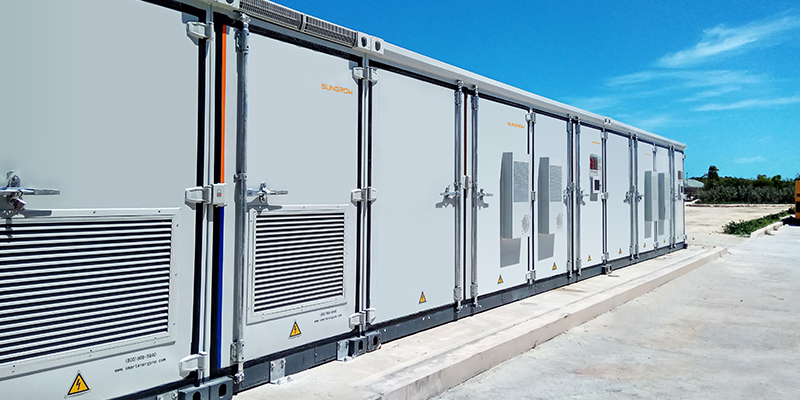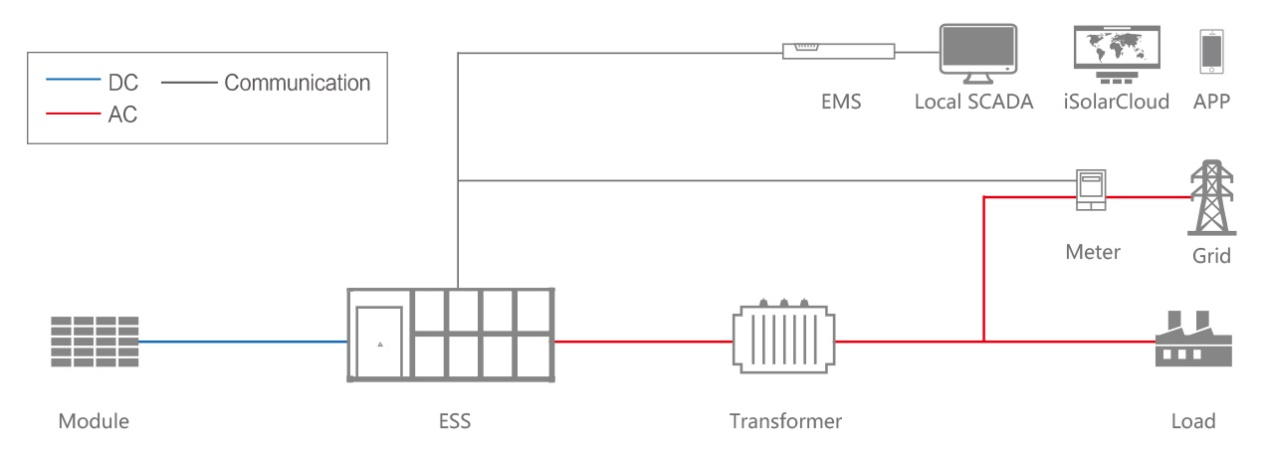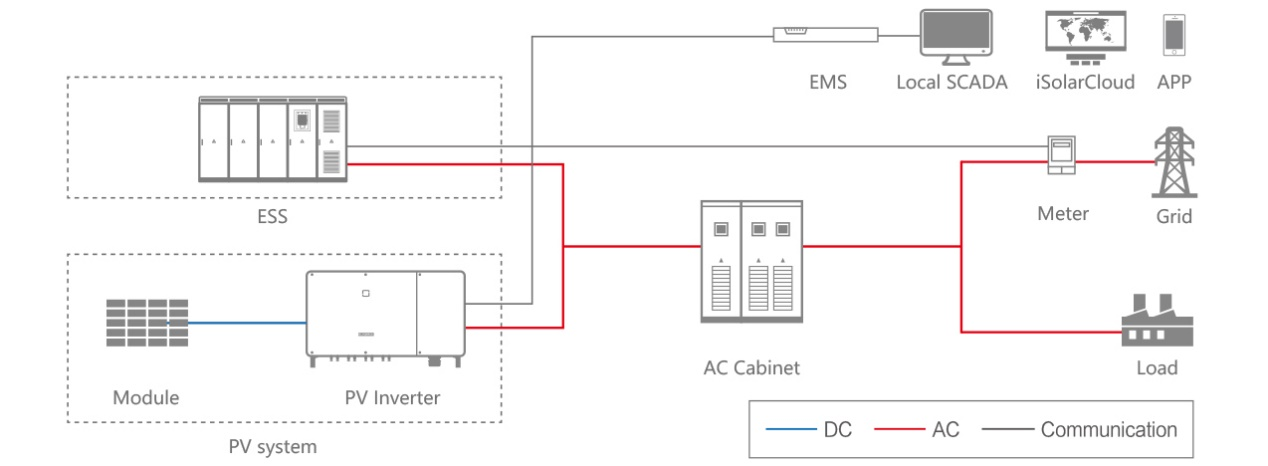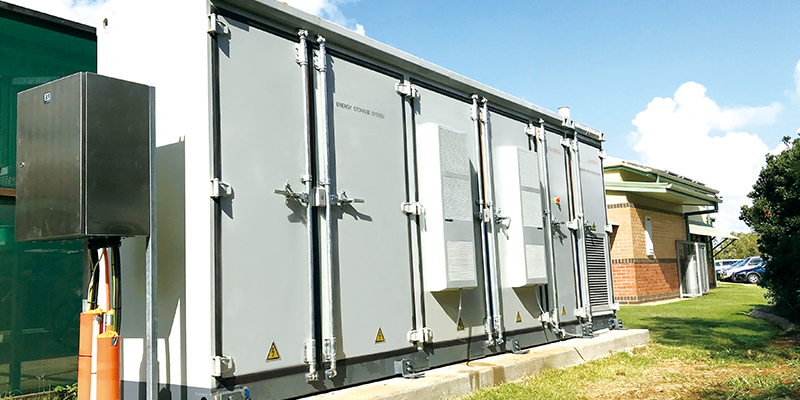Solar power is becoming a critical energy solution for homes and businesses. With the rapid growth of energy storage technology, choosing the right system has never been more important. Two key options are DC coupling and AC coupling. Understanding their differences is essential for selecting the most suitable system for your needs.

What is DC Coupling?
In a DC-coupled system, solar panels generate DC (direct current) power. This power flows directly to a battery for storage. When needed, an inverter converts the stored DC power into AC (alternating current) for appliances. The energy flow is as follows:
Advantages
Higher Efficiency: DC coupling minimizes energy conversion steps, reducing power loss. This makes it ideal for maximizing energy use.
Great for Small Systems: It is particularly suitable for residential setups focused on self-consumption.
Reduced Conversion Losses: Direct energy flow from solar panels to the battery increases overall system efficiency.
Disadvantages
Limited Compatibility: DC coupling can face challenges integrating with existing AC power grids.
Less Design Flexibility: System expansion or integration can be more complex than with AC coupling.

What is AC Coupling?
AC-coupled systems first convert solar panel-generated DC power into AC power via an inverter. Appliances use this AC power, while excess energy charges the battery through a charger, converting AC back to DC for storage. The energy flow is:
Advantages
Seamless Integration: AC coupling is ideal for grid-tied systems, as it connects easily to existing AC power grids.
Expandable Design: It allows for easy expansion of solar systems without altering the original setup.
Disadvantages
Higher Energy Losses: Multiple conversion steps lead to efficiency losses.
Lower Overall Efficiency: Compared to DC coupling, more energy is lost during the conversion processes.

DC Coupling vs AC Coupling: Which Is Right for You?
1. System Efficiency
DC coupling offers superior efficiency for small, self-consumption systems. Fewer conversion steps mean less energy loss. In contrast, AC coupling works better for large-scale systems, where compatibility and expansion are priorities.
2. System Design & Compatibility
DC Coupling: Best for new, integrated solar + storage systems. It is efficient but less flexible.
AC Coupling: More suitable for upgrading or expanding existing solar systems.
3. Use Cases
Large commercial systems.
Grid-tied power generation.
Homeowners expanding their solar systems with battery storage.
Hybrid Solution: The Best of Both Worlds
Hybrid systems combine the benefits of both DC and AC coupling. These systems are designed for maximum flexibility and efficiency.
Hybrid systems can charge batteries directly from solar panels during the day (like DC coupling) or from the grid at night (like AC coupling). This dual approach maximizes energy utilization.
Benefits of Hybrid Systems
Flexibility: Switch seamlessly between solar, battery, and grid power.
Efficiency: Use the most cost-effective energy source at any time.
Reliability: Hybrid systems ensure consistent energy supply, even during grid outages.

Sungrow's Hybrid Solar Power System
Sungrow offers advanced energy storage solutions tailored for both commercial and residential needs. For businesses, the Sungrow hybrid solar power system integrates seamlessly with existing facilities, optimizing energy management with modular design, advanced safety features, and smart monitoring. It supports AC and DC coupling for maximum flexibility.
For homeowners, Sungrow’s residential storage systems enhance solar energy usage by storing excess daytime power for later use, reducing dependence on the grid. Available in single-phase and three-phase options, these systems align with diverse household energy setups, empowering a sustainable and energy-efficient future.
Conclusion
Choosing between DC coupling and AC coupling depends on your specific needs. DC coupling excels in efficiency and is ideal for small, off-grid setups. AC coupling offers flexibility and is perfect for larger, grid-tied systems. For those seeking the best of both worlds, hybrid systems provide a powerful solution.
Sungrow’s hybrid solar power systems combine innovation with practicality, delivering the ideal balance of efficiency and compatibility. Explore Sungrow’s offerings to find the perfect solar solution for your home or business.